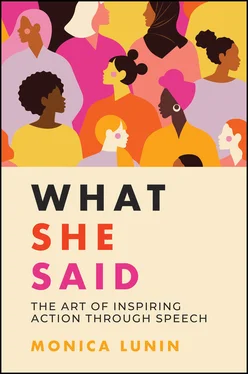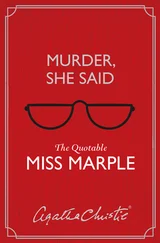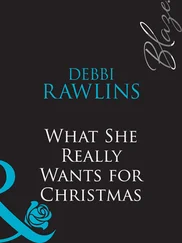Monica Lunin - What She Said
Здесь есть возможность читать онлайн «Monica Lunin - What She Said» — ознакомительный отрывок электронной книги совершенно бесплатно, а после прочтения отрывка купить полную версию. В некоторых случаях можно слушать аудио, скачать через торрент в формате fb2 и присутствует краткое содержание. Жанр: unrecognised, на английском языке. Описание произведения, (предисловие) а так же отзывы посетителей доступны на портале библиотеки ЛибКат.
- Название:What She Said
- Автор:
- Жанр:
- Год:неизвестен
- ISBN:нет данных
- Рейтинг книги:4 / 5. Голосов: 1
-
Избранное:Добавить в избранное
- Отзывы:
-
Ваша оценка:
- 80
- 1
- 2
- 3
- 4
- 5
What She Said: краткое содержание, описание и аннотация
Предлагаем к чтению аннотацию, описание, краткое содержание или предисловие (зависит от того, что написал сам автор книги «What She Said»). Если вы не нашли необходимую информацию о книге — напишите в комментариях, мы постараемся отыскать её.
What She Said
What She Said
What She Said — читать онлайн ознакомительный отрывок
Ниже представлен текст книги, разбитый по страницам. Система сохранения места последней прочитанной страницы, позволяет с удобством читать онлайн бесплатно книгу «What She Said», без необходимости каждый раз заново искать на чём Вы остановились. Поставьте закладку, и сможете в любой момент перейти на страницу, на которой закончили чтение.
Интервал:
Закладка:
In this address, we see several instances of Nightingale seeking to clarify her own meaning. She obviously wants to make sure that she limits the opportunity for misunderstanding as much as possible. This trait has likely developed over her many years spent teaching.
Even though the subject matter of this address is general — she is not teaching us how to change a bedpan or clean a wound — it is still important to be understood. For this, Nightingale effectively and repeatedly employs the technique of contrast. She provides her definition of what it means to be a nurse, explaining what it is and then what it is not.
She takes back the power of the previously pejorative phrase ‘like a woman' and redefines it in the positive — much like the modern reinterpretation of what it means to ‘run like a girl'. Nightingale prescribes three successive aspirations for the trainee nurse: to do your best, to value training, and to be a good nurse. For every piece of advice, she contrasts the opposite driver of the ambition so as to illuminate her true meaning. ‘Let us be anxious to do well, not for selfish praise, but to honour and advance the cause …' Try this technique of providing counterexamples to make sure your audience does not misinterpret your meaning.
Emphasise the nature of learning and leadership
Despite the anachronistic and in so many ways ‘unfeminist' tone of this address, we can tell that Florence Nightingale holds her audience and their chosen profession in high regard. She bestows upon them some inspirational ideas about the nature of lifelong learning and the role of a leader.
We can take from her message that it is our duty to always be the student. Long after basic training is finished, we must be open to learning. That is the only way to become a teacher. She then connects her thinking to the role of the leader. If you are to lead — to command — you must learn to be a good follower. This is a lesson, buried in an antiquated document, that would benefit many aspiring leaders today.
There is a lesson here for those times you need to step into the role of trainer, teacher or facilitator, as most of us will from time to time. Learning to learn will help you better appreciate how to teach. Practising the art of ‘follower-ship’ will make you a better leader.
Encourage high virtue
If Florence Nightingale's new recruits, perhaps in their late teens, were raised in today's world, they might extract from this address the advice that they should be ‘living their best life’ — not in a post-worthy way, but in a way that allows what's best in you to shine. Your ‘best life’ should be intrinsically motivated.
This is the right context to impart the wisdom of experience and that is indeed what the audience will be expecting. Nightingale lists the virtues she believes are required: quietness, gentleness, patience, endurance, forbearance. Then she highlights the one she considers to be the ultimate virtue — thoroughness — and spends some time expounding on the nature of this, possibly overlooked, attribute of the ‘good nurse'.
Nightingale is presumably aiming to set the tone and create a standard for assessment and self-reflection. Though many practical lessons will follow, this is a great place to emphasise the virtues that must underpin all the skills and knowledge these young women will now acquire.
Interestingly, Nightingale links her talk on virtue to her take on the concept of influence. ‘What is influence? The most mighty, the most unseen engine we know.' Young women as influencers? Living their best life? Perhaps Florence Nightingale was ahead of her time after all.
The dead poet who was Shakespeare’s sister will put on the body which she has so often laid down. Drawing her life from the lives of the unknown who were her forerunners, she will be born.
Virginia Woolf
Virginia Woolf
Author
B: 25 January 1882, London, England, United Kingdom
D: 28 March 1941, East Sussex, England, United Kingdom
Shakespeare's sister
When: 1928
Where: University of Cambridge
Audience: Female students from Newnham College and Girton College
Bloomsbury novelist Virginia Woolf was known for her innovative approach to writing and her non-linear storylines. She was complicated and complex in both her character and the way she made sense of the world. The writer made a significant impact on modern fiction and continues to fascinate readers 80 years after she died. In addition to writing fiction, Woolf was prolific in her exploration of ideas and opinions through letters, essays and talks.
In 1928, Woolf was invited to speak to the female students from Newnham College and Girton College at the University of Cambridge on the subject of ‘Women in fiction’. Her thoughts culminated in a piece called ‘Shakespeare's sister’, which was later included in her famous extended essay A Room of One's Own .
The piece is remarkable for its insight and creativity. The audience is delivered a slice of wisdom from the renowned author that is entertaining and thought-provoking. Nearly 100 years later, ‘Shakespeare's sister’ continues to inspire women, especially those looking to pursue a creative career. From Shakespeare's time, through that of the Bloomsbury Group in the early twentieth century, to our modern experience, Woolf shines a light on the inequity of the female experience. Her speech still sparks consideration and discussion on this matter, which is far from resolved.
Woolf's creation of ‘Shakespeare's sister’ is emblematic of all women who have faced the inequalities of opportunity. In continuing these ideas, A Room of One's Own sets out a case for the independent means a woman must fiercely acquire and protect in order to summon the creative forces she has. In Woolf's view, this independence is the minimum requirement for even a hope of equal participation.
Woolf's lecture continues to deliver guidance nearly a century after it was delivered. This speech (reproduced in full here) is also an exemplar of Virginia Woolf's meandering thoughts, so beautifully and hauntingly rendered.
WHAT SHE SAID
When you asked me to speak about women and fiction I sat down on the banks of a river and began to wonder what the words meant. They might mean simply a few remarks about Fanny Burney, a few more about Jane Austen, a tribute to the Brontës and a sketch of Haworth Parsonage under snow, and one would have done. But at second sight, the words seemed not so simple.
The title ‘Women and fiction’ might mean women and what they are like, or it might mean women and the fiction that they write, or it might mean women and the fiction that is written about them, or it might mean that somehow all three are inextricably mixed together and you want me to consider them in that light. But when I began to consider the subject in this last way, which seemed the most interesting, I soon saw that it had one fatal drawback: I should never be able to come to a conclusion.
All I could do was to offer you an opinion upon one minor point: a woman must have money and a room of her own if she is to write fiction; and that, as you will see, leaves the great problem of the true nature of woman and the true nature of fiction unsolved.
But in order to make some amends, I am going to do what I can to show you how I arrived at this opinion about the room and the money. I need not say that what I am about to describe has no existence; Oxbridge is an invention; ‘I’ is only a convenient term for somebody who has no real being. Lies will flow from my lips, but there may perhaps be some truth mixed up with them.
Читать дальшеИнтервал:
Закладка:
Похожие книги на «What She Said»
Представляем Вашему вниманию похожие книги на «What She Said» списком для выбора. Мы отобрали схожую по названию и смыслу литературу в надежде предоставить читателям больше вариантов отыскать новые, интересные, ещё непрочитанные произведения.
Обсуждение, отзывы о книге «What She Said» и просто собственные мнения читателей. Оставьте ваши комментарии, напишите, что Вы думаете о произведении, его смысле или главных героях. Укажите что конкретно понравилось, а что нет, и почему Вы так считаете.












